OCD Treatment for Young Adults
Learn about different symptoms, causes, and treatment options for Obsessive Compulsive Disorder(OCD) in young adults.
Obsessive-Compulsive Disorder (OCD) is a common and chronic anxiety disorder that is characterized by uncontrollable, reoccurring thoughts (obsessions) or behaviors (compulsions) that they feel the need to repeat.
Someone with OCD can have obsessions, compulsions, or both.
The symptoms of OCD can affect a young person’s whole life, including work, school, and relationships. It can make it very difficult to function on a day-to-day basis and cause problems in their social and home life.
Young adulthood is a period that can involve a lot of stress, changes, and transitions. Having OCD as a young person can become very difficult to manage as they already face a number of stressors on a day-to-day basis.
It is completely normal for many people to have daily rituals or habits that they repeat in their everyday life.
However, young adults with OCD typically can’t control their thoughts and behaviors. They will spend a minimum of an hour a day on compulsions and don’t feel pleasure from performing their rituals. Their behaviors may provide temporary relief from the anxiety that their thoughts cause.
The exact cause of OCD is unknown, but common risk factors can include:
More research is needed to determine the connection between the development of OCD and childhood trauma.
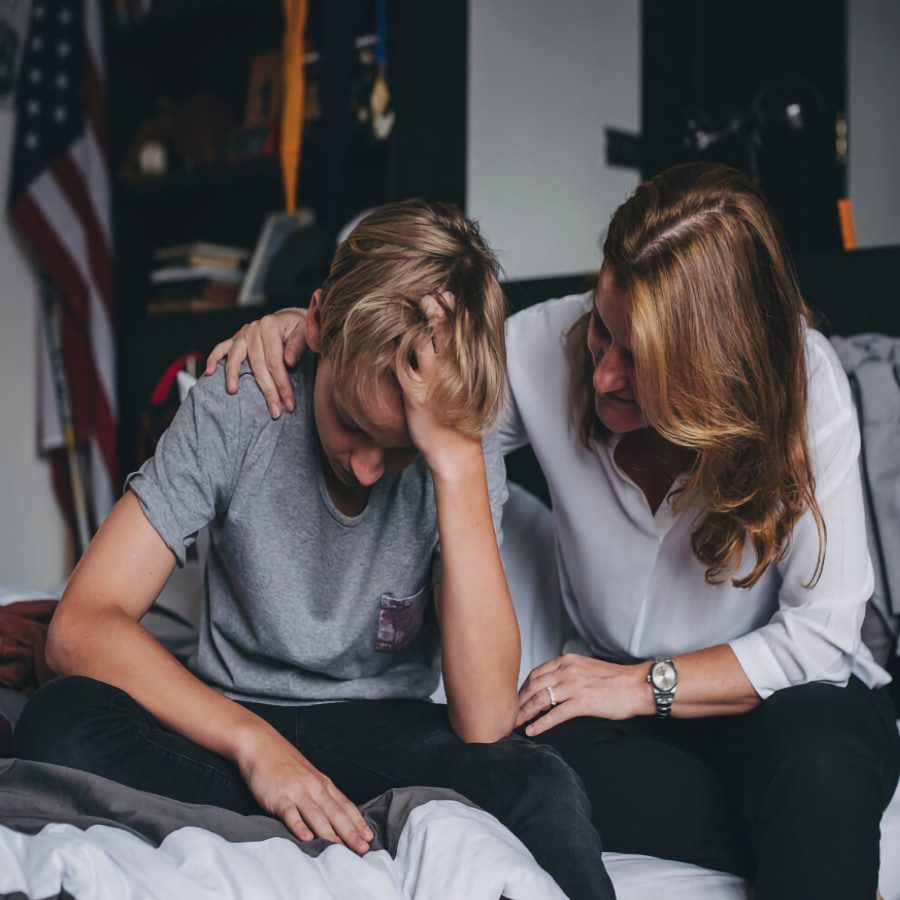

Most people are diagnosed with OCD in their later teen or early young adult years; however, symptoms can develop in childhood, adolescence, or adulthood.
Symptoms of OCD commonly come up in early childhood, around the age of 10, and young adulthood, around the age of 20.
Most people are diagnosed by their early adulthood years.
People with a close family member diagnosed with OCD are at a higher risk of developing OCD.
More research is needed on how a person’s environment and brain structure can affect the risk of developing OCD.
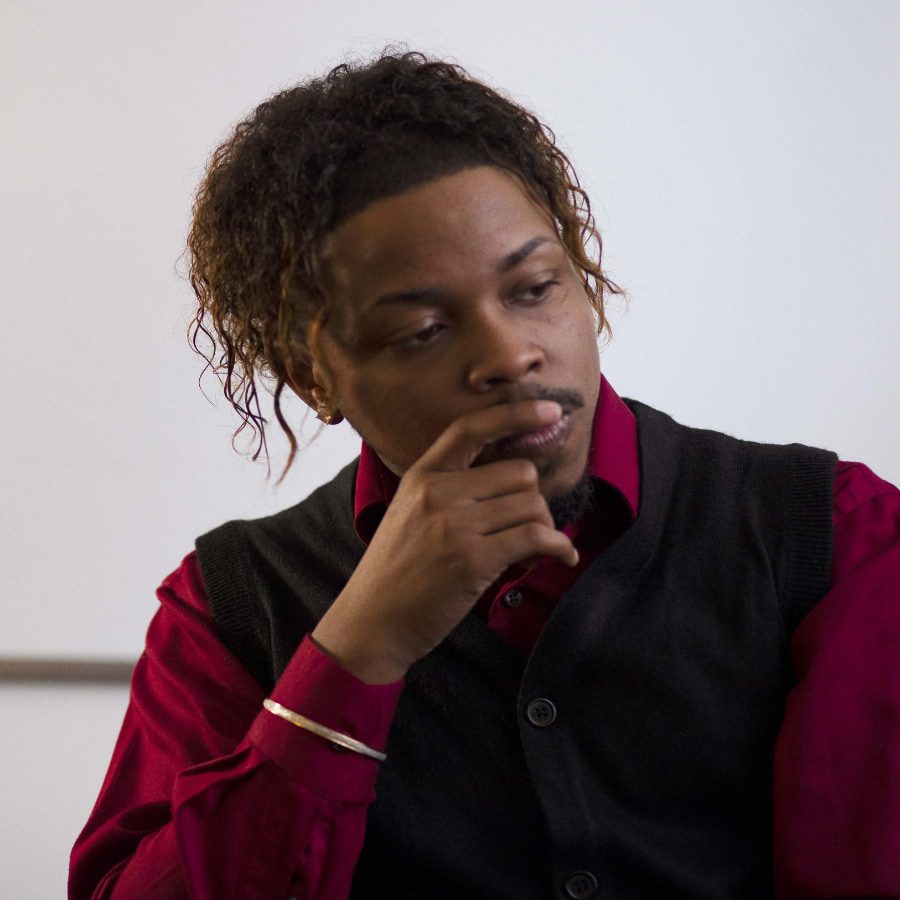
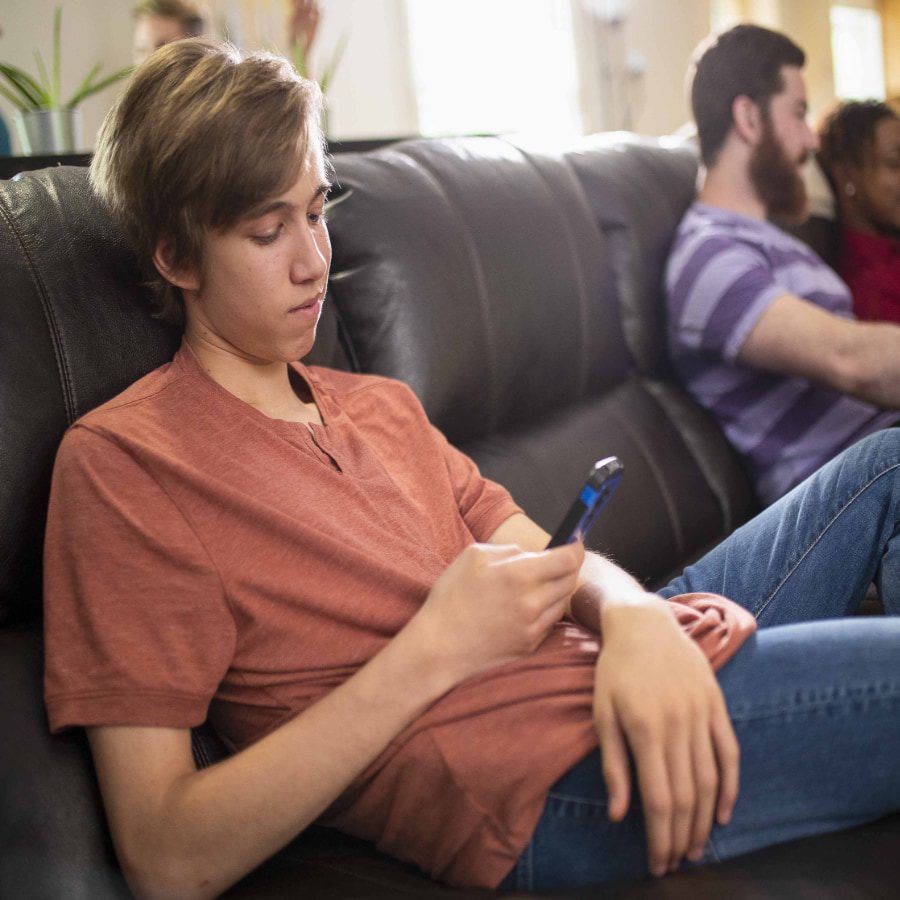
OCD can come in a variety of forms, but there are four main groups that OCD can fall under.
The four types of OCD include:
Research is being done to determine the connection between childhood trauma and the development of OCD.
Trauma can refer to physical abuse, emotional abuse, sexual abuse, loss of a loved one, experiencing a natural disaster, and other events.


Obsessions refer to thoughts, urges, or images that cause anxiety.
Common symptoms of obsessions can include:
Compulsions are repetitive behaviors that someone with OCD feels the need to do because of obsessive thoughts.
Compulsions may include:
Some individuals diagnosed with OCD may also be diagnosed with a tic disorder. Tics refer to sudden movements such as eye blinking, shoulder jerking, or throat clearing.
People with OCD may turn to substances as a way to self-medicate or as a way to calm their thoughts. However, substance use can worsen the symptoms of OCD and cause more problems over time.
Many people with OCD are also diagnosed with mood disorders or anxiety disorders.
A young adult with OCD may show warning signs that can include:
Many people with OCD understand that some compulsive behaviors don’t make sense. However, for others, it can be hard to realize that their thoughts or behavior are not typical.
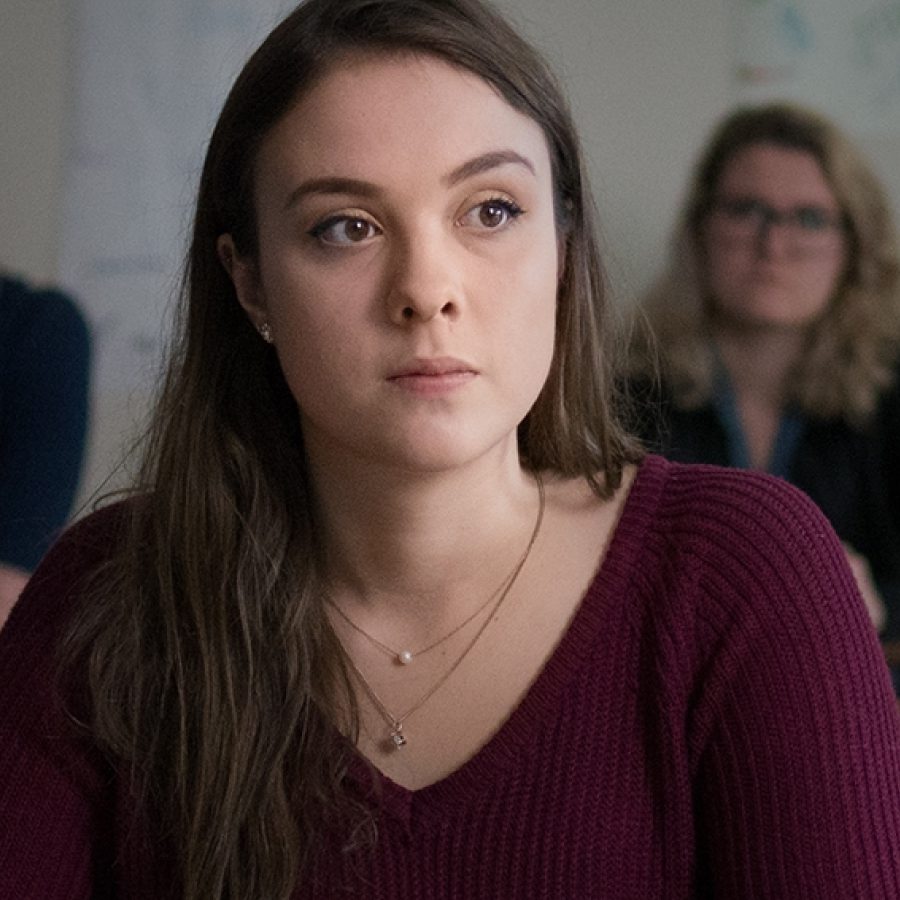
If a young adult or loved one is experiencing signs and symptoms of OCD, it is important to seek help from a professional to receive a proper diagnosis.
You may want to seek help if their thoughts and behaviors are causing a significant impact on their everyday life, and they spend a significant amount of time in their day on these thoughts and behaviors.
Additionally, if a person feels that they can’t control their thoughts or behaviors and are experiencing anxiety from them, it could be time to reach out for help.
A healthcare provider will talk to an individual about their symptoms and history. They may also perform a physical exam to make sure they can rule out any other possible causes of symptoms.
They can then refer to a mental health professional such as a psychologist or psychiatrist, who will be able to do a more thorough evaluation.
A mental health professional will go through assessments that have specific questions to help determine if their symptoms meet the criteria for an OCD diagnosis and can help develop a treatment plan.
OCD can be commonly mistaken for other mental health disorders such as generalized anxiety disorder.
It is important to receive professional help, research, and talk to different people about options to ensure that you get the best treatment possible.
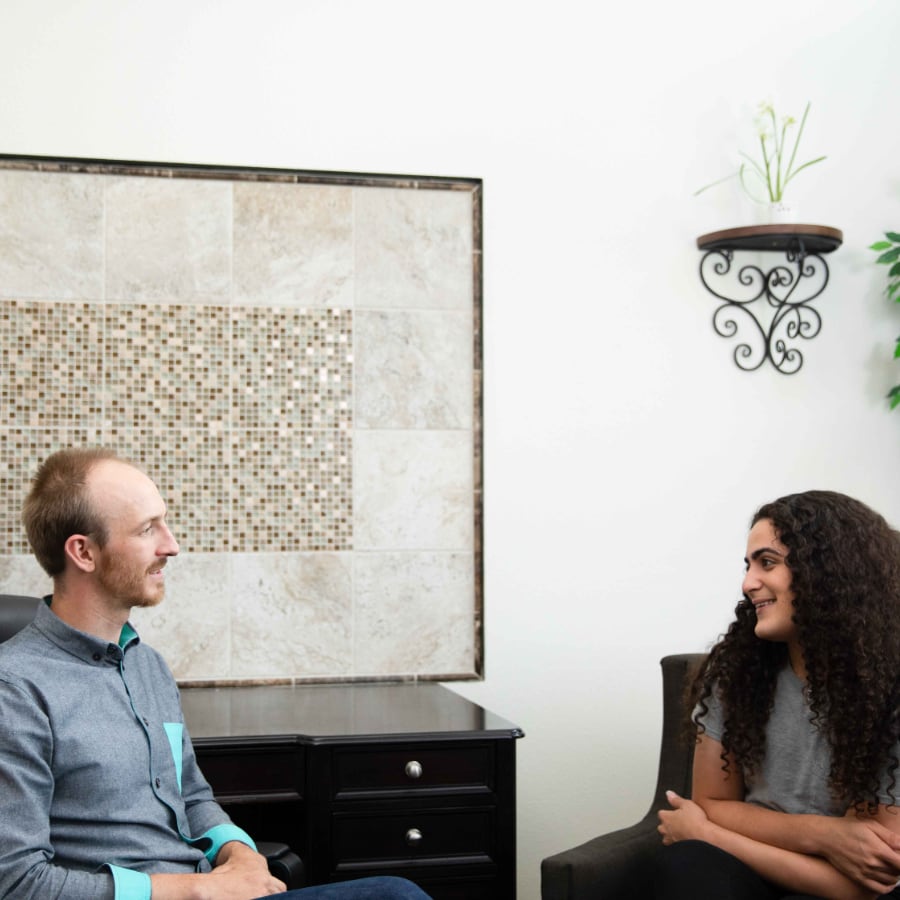

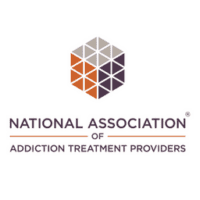

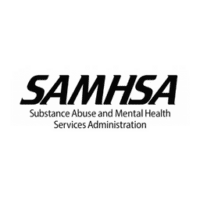
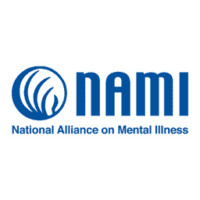
The Continuum of Care
Access a full range of treatments for mental health and substance use disorders. Whether you need a safe transitional living community, inpatient care, or outpatient therapy, we have a program to help.
5-21 days of 24/7 on-site medical supervision.
Our Medically-Assisted Detox and Inpatient Center offers private rooms and 24/7 medically supervised care to support a safe recovery from drugs and alcohol, followed by comprehensive treatment that addresses your physical, psychological, emotional, and spiritual needs.
2-6 Months
Our Transitional Living Program combines the structure of treatment and group living, with the freedom of living away from home.
This level of care is for young adults (18-30) who are not quite ready to heal from home. A safe and supportive living environment integrated with a PHP or IOP level of care so you learn life skills and healthy coping mechanisms in an environment that’s set up for your success.
4 weeks of on-site day treatment.
Our Young Adult Day Treatment Program, also known as Partial Hospitalization Program (PHP), is a highly structured level of care for young adults that offers five days of robust programming a week.
Our two distinct mental health and substance use tracks help young adults to stabilize, begin to understand their mental health and/or addiction struggles, and heal from them. We strive to help our clients become more like the person they want to be without using negative coping strategies or substances to get there.
12 weeks of on-site or virtual treatment.
Our Young Adult IOP, or Intensive Outpatient Program, offers two distinct tracks to address young adult needs, each track consisting of 3-4 days of weekly programming.
In our mood disorder track, we are able to focus on mental health, depression, trauma, and anxiety. In our dual diagnosis track, we are able to support young adults with substance use and mental health challenges. Each focuses on developing positive social, academic, and vocational habits while continuing with their job or school responsibilities.
Sandstone Care’s Residential Extended Care Program offers young adults ages 18 to 30 a therapeutic setting where they can receive a high level of structure and support for mental health treatment.
At Sandstone Care, we offer age- and gender-specific housing options so that individuals feel comfortable while receiving treatment and can build lasting connections.
We offer a wide range of services, including family therapy, experiential therapy, academic and vocational support, psychiatric consultations, group therapy, individual therapy, medication management, and trauma-informed care.
Residential treatment can be suitable for young adults who need a structured environment, have found other levels of care ineffective, or may pose a risk to themselves or others.
Locations: Colorado
Sandstone Care’s Holistic Day Treatment Program, also known as Partial Hospitalization Program (PHP), involves 25 hours of weekly programming for young adults struggling with addiction, substance use, or mental health.
At Sandstone Care, our day treatment program operates from Monday through Friday from 12:00 PM to 5:00 PM.
Individuals will take part in 5 hours of group therapy sessions, individual therapy sessions, family therapy sessions and will attend our academic and vocational support component.
Day treatment can be suitable for young adults who have recently completed a residential treatment program or inpatient program and need to step down a level of care.
Day treatment could also benefit young adults transitioning between schools or finding employment.
Locations: Colorado, Virginia, Maryland & Illinois
Sandstone Care’s Young Adult Intensive Outpatient Program (IOP) can help young adults understand their substance use or mental health struggles and overcome them.
Our IOP program is a longer-term program that lasts from 8 to 12 weeks.
Through IOP, we focus on helping young adults become more like the person they want to be.
We also offer Virtual IOP, which consists of all the same programming online.
Our Virtual IOP program can be suitable for young adults who have transportation issues, do not have a treatment center close by, or have health concerns that affect attending in-person treatment.
IOP can benefit young adults who need treatment but still need to keep up with everyday responsibilities such as work or school.
According to the NIMH, the root cause of OCD is unknown; however, research suggests that genetics likely play a role.
More research is being done to better understand the causes of OCD, the differences in the brain of someone with OCD and someone without, and what treatments people with OCD respond best to.


OCD does not go away on its own and is considered a chronic condition, meaning it lasts for a long time.
Sometimes symptoms of OCD may come and go, where they feel less significant at times and worse at others.
With treatment, however, the symptoms of OCD can become more manageable and make it easier to function on a day-to-day basis.

Sandstone Care is here to support teens and young adults with substance use and mental health disorders.
The most effective treatment for OCD typically involves medication, psychotherapy, or a combination.
Medications like serotonin reuptake inhibitors (SRIs) are commonly used for treating OCD. SRIs are often used for treating depression but can also be used for treating OCD.
With SRIs, some people may find that it can take 8 to 12 weeks for symptoms to improve, and they may need higher doses compared to someone being treated for depression.
Medications may also cause some side effects in young adults, such as headaches or trouble sleeping. It is important to consult with a health care provider and not stop taking the medication without talking to them.
Psychotherapy is also an effective treatment for OCD, especially in children, teens, and young adults. In some cases, psychotherapy can be just as effective as medication for treating OCD.
There is no cure for OCD.
Additionally, symptoms can likely worsen over time if a person goes without treatment for OCD.
Treatment can help the symptoms of OCD become more manageable and allow a person to live a normal and sustainable life.

Cognitive-behavioral therapy (CBT) is a common form of psychotherapy used to treat various mental health disorders.
CBT can help a young person learn new ways of thinking and behaving in response to obsessions and compulsions.
CBT is centered around identifying negative beliefs and restructuring them so that they better reflect reality.
It can be used in both an individual and group setting. A variety of different therapies fall under the umbrella of CBT, and it can be used as a tool in an integrated approach for treating mental health and substance use disorders.
Dialectical behavior therapy (DBT), is another form of psychotherapy that is effective for many types of mental disorders.
DBT focuses on four main skills: mindfulness, interpersonal effectiveness, emotion regulation, and distress tolerance. Each of these skills contributes to the self-management of acceptance and change.
According to DBT, people operate in three states of mind: Emotion Mind, Reasonable Mind, and Wise Mind. By understanding these three states and how they all connect, a person can understand what states of mind drive their actions.
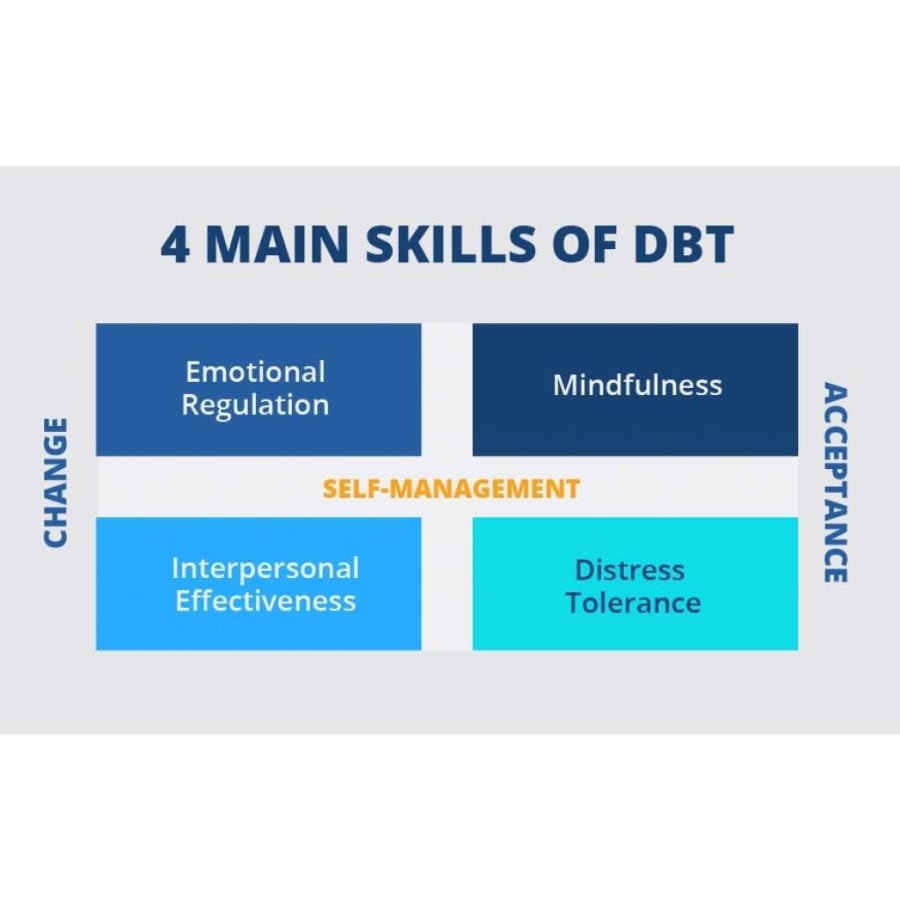
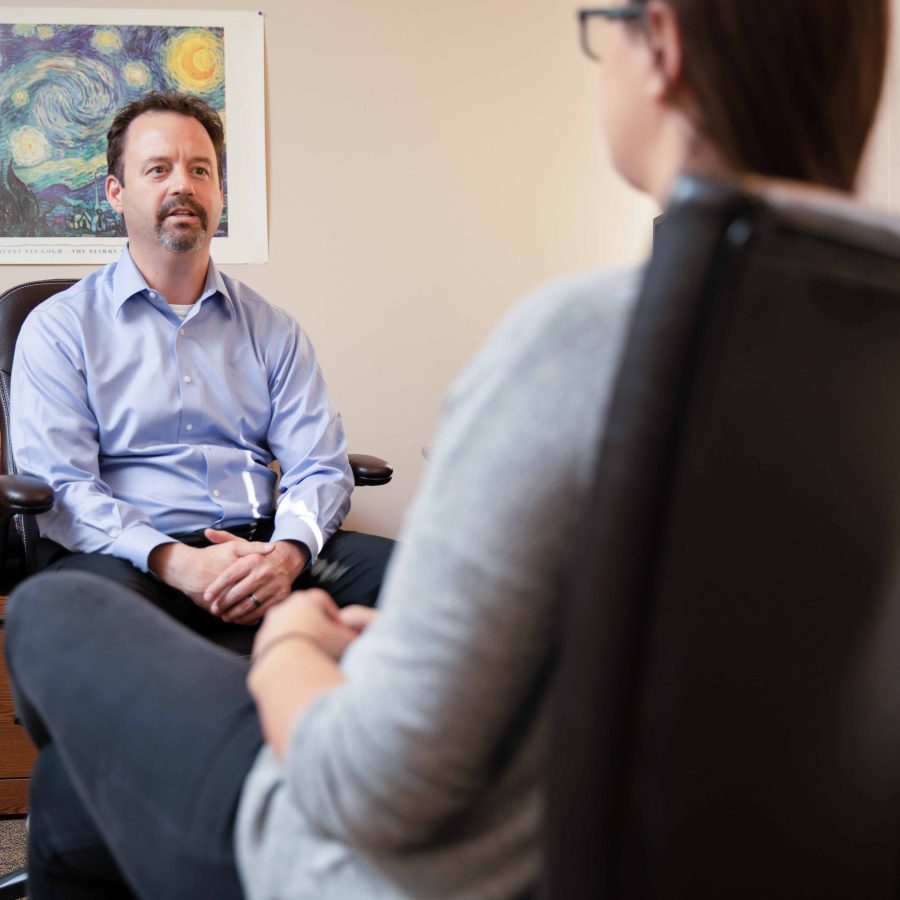
Exposure and Response Prevention is a form of CBT that involves spending time in situations that trigger compulsions and preventing the resulting compulsion.
Through ERP, a person is gradually exposed to their fears or obsessions so that they can learn ways to cope with the anxiety that comes from them.
ERP can effectively reduce compulsive behaviors even in people who don’t find medication effective.
Group therapy can be extremely beneficial for teens and young adults struggling with mental health or substance abuse problems.
Group therapy typically involves one or more therapists with a group of individuals who commonly share similar experiences.
Through group therapy, young people can learn from each other and have a space to be open.
When someone is struggling with mental health, it can feel very isolating and be hard to believe that somebody else would understand what they are going through.
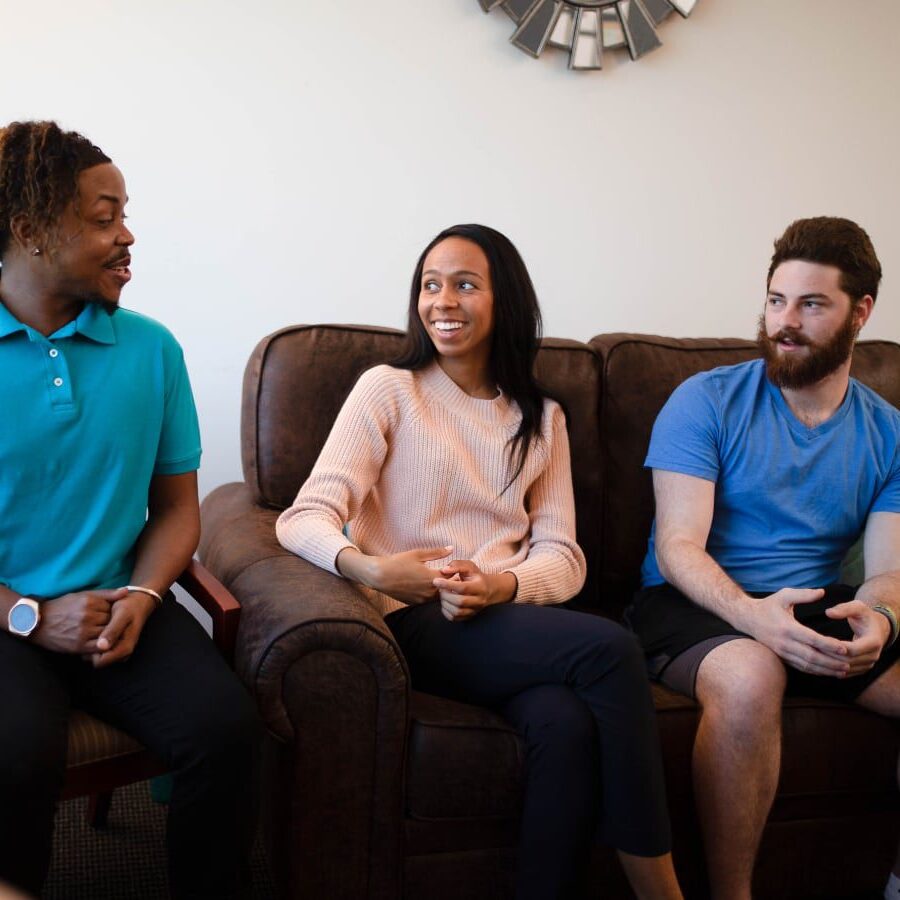

Family involvement is an important part of young adult treatment.
Family therapy allows members to share their experiences and feelings and learn how to better understand and support one another.
When one person in a family is struggling, everyone struggles.
A mental health disorder can make it difficult to open up to others, even those close to you. Family therapy helps to open up a line of healthy communication and provides a safe space for everyone.
A strong support network comprised of an individual’s treatment team, family, peers, and people close to them can make all the difference in the treatment and recovery process.
Academic and vocational support are a major component of young adult mental health treatment.
Through academic support and vocational training, young adults can build life skills, techniques, and strategies that they can use long after treatment is over.
Having a strong support network and helping young adults achieve their goals and live a life they want to can help them feel more confident in themselves and their abilities.

Sandstone Care offers age-specific, individualized, and evidence-based treatment programs that help you regain control of your life and achieve lasting recovery.
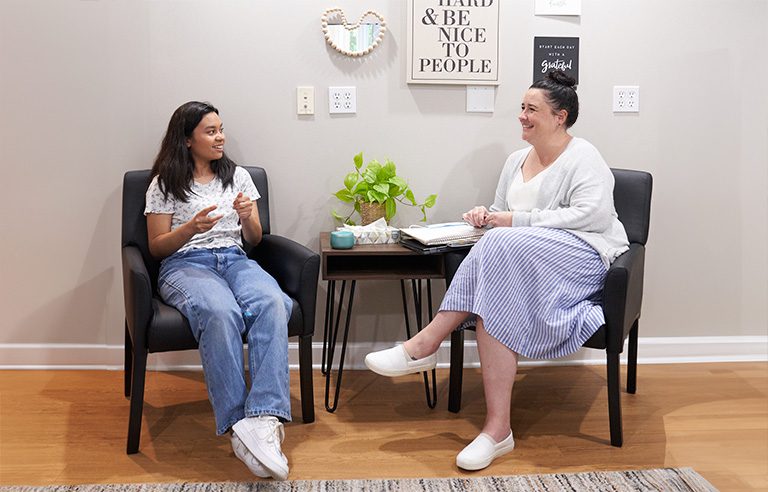
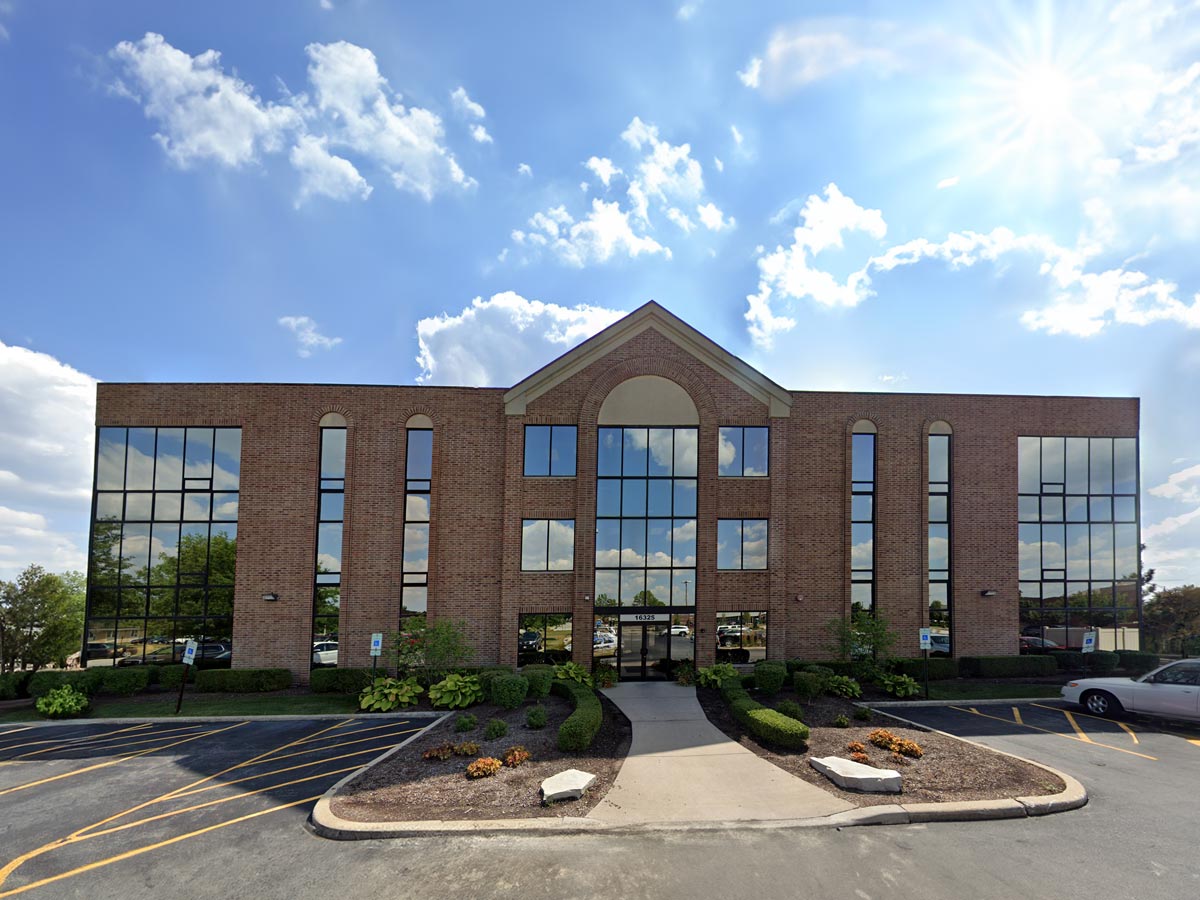
16325 S Harlem Ave #260, Tinley Park, Illinois, 60477
(708) 905-2509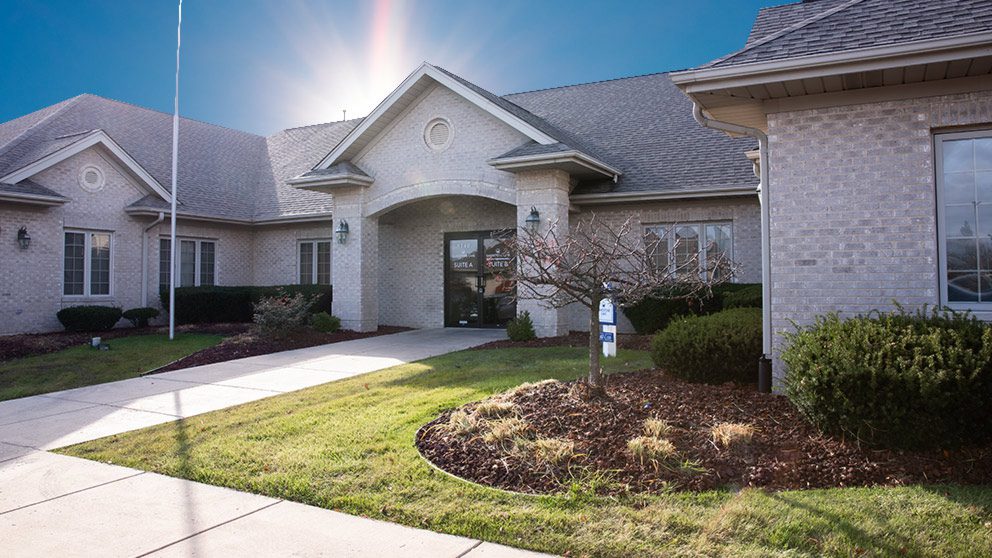
FAQ
Our goal is to provide the most helpful information. Please reach out to us if you have any additional questions. We are here to help in any way we can.
OCD is a mental health condition that can affect anyone.
According to MedlinePlus, OCD is a common condition that occurs in about 2% of the population.
Some research suggests the connection between childhood trauma and maltreatment and its link to worsened OCD symptoms.
Childhood trauma can include physical, emotional, or sexual abuse and may cause worsened symptoms of OCD.
Treatment can be extremely beneficial for young adults with OCD and improve their everyday lives.
However, young adults still deal with many different stressors on a day-to-day basis.
There are a number of things a young person can do outside of therapy to help cope with the stress that may stem from OCD. This can include:
Yes, you can develop OCD at the age of 20.
OCD typically begins in adolescence but can also start in early childhood or early adulthood.
Some studies show a difference in the brain structure and functioning between a person with OCD and a person without.
More specifically, differences have been found in the areas of the brain called the prefrontal cortex and in the subcortical structures of the brain, according to the National Institute of Mental Health.
Studies suggest that it is possible there is a connection between abnormalities in the brain and OCD symptoms. A better understanding of these connections can also help researchers how they can develop more unique treatments for OCD.


We understand taking the first step is difficult. There is no shame or guilt in asking for help or more information. We are here to support you in any way we can.